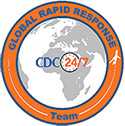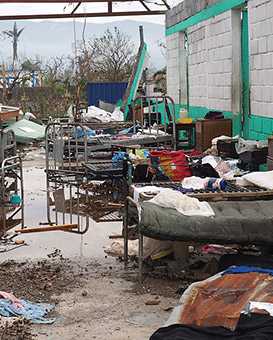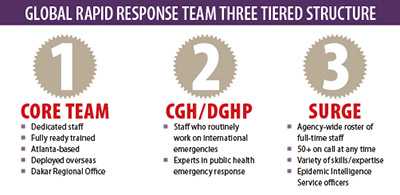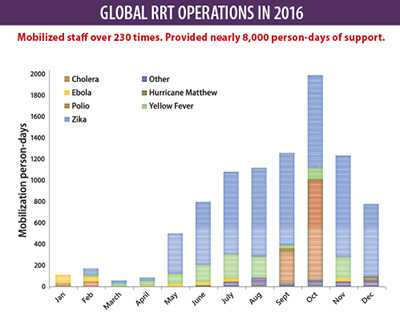Global Rapid Response Team: Enhancing CDC's Global Emergency Response Capacity

Keeping the world safe from diseases requires the right people, surveillance, labs, public health organizations and a way to manage and integrate these elements into effective response systems. In recent years there have been a number of severe global public health emergencies including population displacements, infectious disease outbreaks, and natural disasters. As we learned from the recent Ebola epidemic, these emergencies require a rapid response if they are to be contained and managed, in order to save lives.

To address the public health challenge of such emergencies and increase the global emergency response workforce, CDC established the Global Rapid Response Team (Global RRT). Housed within DGHP, the Global RRT is an agency-wide resource which supports CDC’s response to global outbreaks and other emergencies. The Global RRT infrastructure enables more than 50 CDC staff to deploy anywhere in the world within 24-48 hours of a declared public health emergency. Maintaining a roster of public health experts ready to mobilize and rapidly contain outbreaks at the source enhances global health security. These staff are trained to support CDC experts and partners in complex multi-agency responses to global health threats in difficult settings.
The Global RRT is a three-tiered team with both dedicated staff and surge staff from across the agency with specialized expertise. Since being established in 2015, the Global RRT has provided response staff for public health emergencies including countries affected by Hurricane Matthew where they helped assess the public health impact of the storm. This highly trained workforce also led the response during a significant yellow fever outbreak in Angola, helping quickly contain the disease's spread. In its first year of existence, the Global RRT staff supported more than 140 responses, including outbreaks of cholera, yellow fever, Ebola, measles, polio, and Zika, and assistance for public health emergencies at mass gatherings, and during natural disasters in 18 countries. This translated to more than 8,000 person-days of CDC staff in the field.
By enhancing the CDC’s capability to more rapidly and efficiently respond to health emergencies worldwide, the Global RRT is contributing to enhanced global health security.


- Page last reviewed: March 24, 2017
- Page last updated: March 24, 2017
- Content source:


 ShareCompartir
ShareCompartir